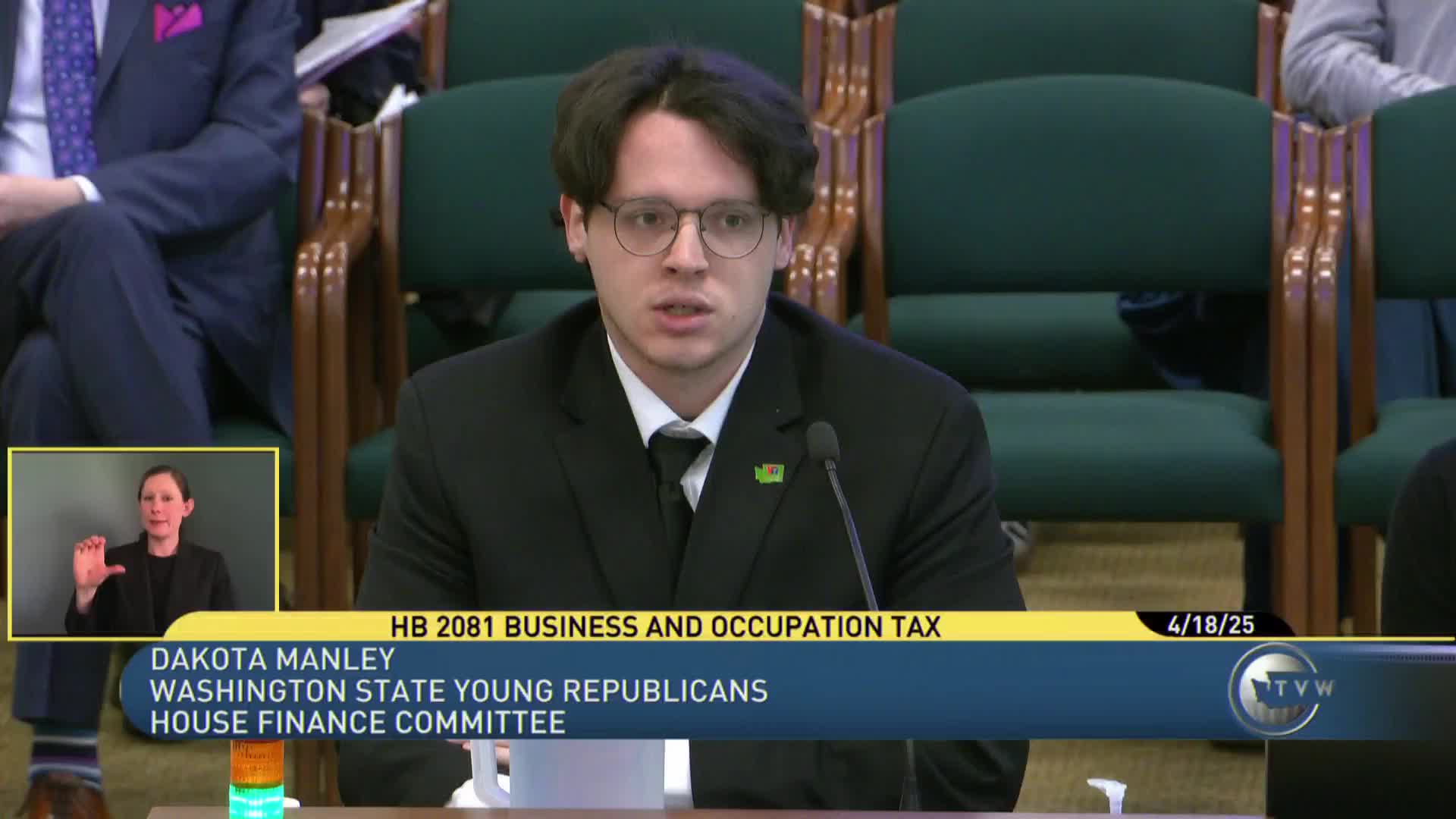Committee hears HB 2084 to repeal tax preferences for bullion, change self-storage taxation, and remove pharmacy warehousing rate
Get AI-powered insights, summaries, and transcripts
Subscribe
Summary
House Bill 2,084 would repeal B&O and sales-tax preferences for certain transactions — including precious-metal bullion sales, some self-storage rentals and a warehouse wholesaler rate for prescription drugs — and direct additional revenue to state needs such as education and public safety.
House Bill 2,084 would close several longstanding tax preferences: repeal the sales-tax and B&O exemption for sales of precious-metal bullion and coins, subject monetized bullion to the same rules as other taxable goods; treat rental revenue from individual self‑storage units as taxable business activity rather than an exempt real-property rental in some circumstances; and remove a preferential wholesaling B&O rate for businesses that warehouse and resell prescription drugs.
Under staff briefing, the bullion and wholesale-pharmacy changes would generally take effect Oct. 1, 2025; the self-storage rental change was presented with an effective date in committee materials of April 1, 2026 (staff noted some Department of Revenue assumptions used a later effective date). The Department of Revenue’s fiscal estimate included roughly $102.9 million in additional revenue for the 2025–27 biennium and $150.9 million for 2027–29 (about $253.8 million over four years), though staff cautioned assumptions about taxpayer behavior and effective dates affect the sum.
Supporters framed HB 2,084 as a progressive revenue step to protect education, health care and public safety without raising taxes on low‑income households. Testimony from educators, health professionals and anti‑poverty organizations emphasized service and classroom impacts if revenue is not raised. Representative Alex Ramel, the bill sponsor, said the proposal asks whether the legislature will continue “exemptions and preferences” for certain sectors and urged using repealed preferences to fund state priorities.
Opponents focused on targeted harms. Precious-metal and rare-coin dealers warned repeal would push buyers to neighboring states or online vendors, reduce statewide commerce related to coin shows and collectors, and harm small investors who buy small quantities of coin or bullion. Pharmacy-distribution and grocery witnesses said ending the preferential B&O rate for wholesalers would raise costs on pharmacies and could jeopardize retail pharmacy viability, especially in rural areas where pharmacies operate on slim margins and do not control reimbursement rates.
Self‑storage operators and associations said reclassifying individual unit rentals as taxable business activity would disproportionately affect small, family‑owned storage operators and customers who use units out of necessity (military families, people facing housing disruptions, caregivers, small-business owners). Industry witnesses also raised constitutional arguments, citing Washington Supreme Court uniformity precedent that treats rental income from real property as property tax subject to a uniformity requirement (Article VII, Section 1 of the Washington Constitution). Several witnesses asked the committee to refine statutory language to avoid unintended taxation of other types of leased real property.
The committee heard extensive public testimony for and against the bill and closed the hearing without taking final action. Staff requested amendment drafts by the committee’s deadline for technical fixes and clarifications, including language that would ensure the policy targets only the intended transactions and preserves existing exemptions where the legislature intends them to remain.
